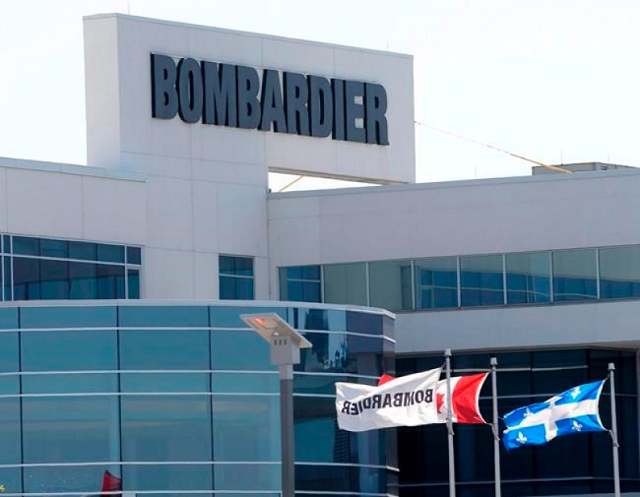Canadian airplane maker, Bombardier Inc, has sued the aircraft unit of Japan’s Mitsubishi Heavy Industries Ltd, saying former Bombardier employees passed on trade secrets to help Mitsubishi’s oft-delayed regional -Jet project.
Bombardier filed the lawsuit late weekend in a federal court in Seattle against Mitsubishi Aircraft Corporation, Seattle-based Aerospace Testing Engineering & Certification Inc and several former Bombardier employees.
AeroTEC is working with Mitsubishi Aircraft to help it get the 90-seat passenger jet certified by regulators.
The 92-page lawsuit alleges that Bombardier employees who were recruited by Mitsubishi or AeroTEC, brought with them, confidential documents and data related to the certification of airplanes in Canada and the United States.
Bombardier is seeking a preliminary injunction to prevent Mitsubishi Aircraft and AeroTEC from using the information it says was taken.
The lawsuit says the employees sent key documents to their personal email accounts prior to leaving Bombardier and joining the Mitsubishi project.
A spokeswoman for Mitsubishi Aircraft said on Monday the company believed Bombardier’s claim was “groundless”.
“We will consider the details and prove this in the appropriate venue,” she added.
AeroTEC could not immediately be reached for comment on Sunday.
Mitsubishi’s regional jet program, Japan’s first passenger plane since the 1960s, has been delayed by several years.
First customer ANA Holdings Inc is now expecting the 90-seater plane in 2020, rather than in 2013 as originally envisaged.
In the lawsuit, Bombardier accused Mitsubishi Aircraft of violating the Defend Trade Secrets Act of 2016.
It did so by trying to use the confidential data and documents obtained from former employees to accelerate the “extremely complex and costly” process of getting its planes certified.
According to the lawsuit, Mitsubishi has in the past, cited the difficulty of achieving certification as one of the factors holding up the launch of its planned regional aircraft.
It is set to compete with Bombardier’s C Series jet, which was renamed as the Airbus SE (AIR.PA) A220 in July.
Bombardier said it took it nearly a decade to take its C-Series from concept to commercial flight.
It said only four companies since 2000 had been able to develop a “clean-sheet” aircraft programme approved by regulators in Canada, Europe and the United States.
“This is because, understandably, these various regulatory agencies require aircraft manufacturers to meet innumerable exacting standards to ensure aircraft airworthiness and public safety,” Bombardier said in the lawsuit.












